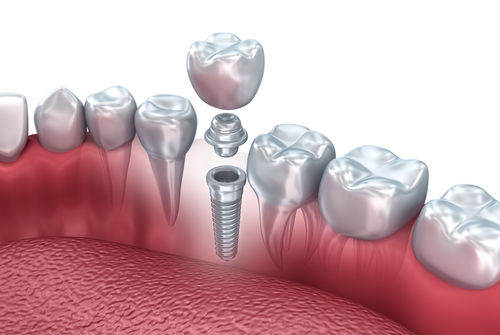Root canal treatment, also known as endodontics, is a procedure that saves a severely decayed or infected tooth. In short, the tooth pulp is removed and the bacteria is eliminated. Root canals are common and painless. Thanks to modern technology, the procedure is quite comfortable. Advanced instruments and numbing medication are used to assure a seamless and painless procedure. Learn more about root canal treatments below and contact us today.
Why are Root Canal Treatments Needed?
Bacteria found in the mouth can invade the teeth, affecting the tooth pulp. The most common sign of infection is a severe and prolonged toothache, sometimes unresponsive to pain medication.
Symptoms also include pain when chewing food or tooth sensitivity. Pain or discomfort will differ between patients. Some may notice severe discomfort, while others may not feel anything. This is why routine dental exams are essential to detect issues such as infection. In general, tooth infections are caused by damaged fillings, damaged teeth, decay, or tooth injury.Severe infections feature extreme and prolonged pain, gum swelling, pus, facial swelling, and discoloration of the affected tooth. Should one experience any of these symptoms, one needs to visit the dentist urgently. Antibiotics and pain medications are not sufficient in the management of root canal infections. Thus, dentists usually recommend root canal treatments to effectively cure the infection and save the tooth.
The Procedure
Before the dentist recommends a root canal treatment, a thorough dental examination is performed. The dentist is likely to recommend a dental X-ray to further understand your oral health and extent of infection. If a root canal is recommended, the doctor uses a rubber dam to keep the affected area dry during the procedure. Numbing agents are also used to assure the patient is comfortable.The doctor then drills an access hole into the tooth. Next, he or she removes the entire pulp, including the bacteria, nerve tissues, and any other debris from the affected tooth. Once the tooth is clean, the dentist seals it and places a temporary crown. The permanent crown is then custom-made and later placed. Dental crowns are essential for a successful root canal. Essentially, crowns are caps that function and look like natural teeth. They also provide great coverage for large fillings to protect the underlying tooth.
Avoiding Tooth Infections
Tooth infections can be prevented with great dental hygiene. We recommend brushing your teeth at least twice a day and flossing daily. In addition, maintaining dental exams and cleanings will further prevent infection and detect issues early on. Patients can also enjoy a healthier diet to prevent the accumulation of plaque and tartar. In all, staying proactive in your dental health minimizes the chances of extensive dental work.
Learn More
Liberia Dental Care offers a variety of dental treatments including root canal therapy. Learn more about your dental health and how to maintain it with a consultation. We are always accepting new patients of all ages. Call 703-260-1200 or book an appointment online. We look forward to meeting you!









